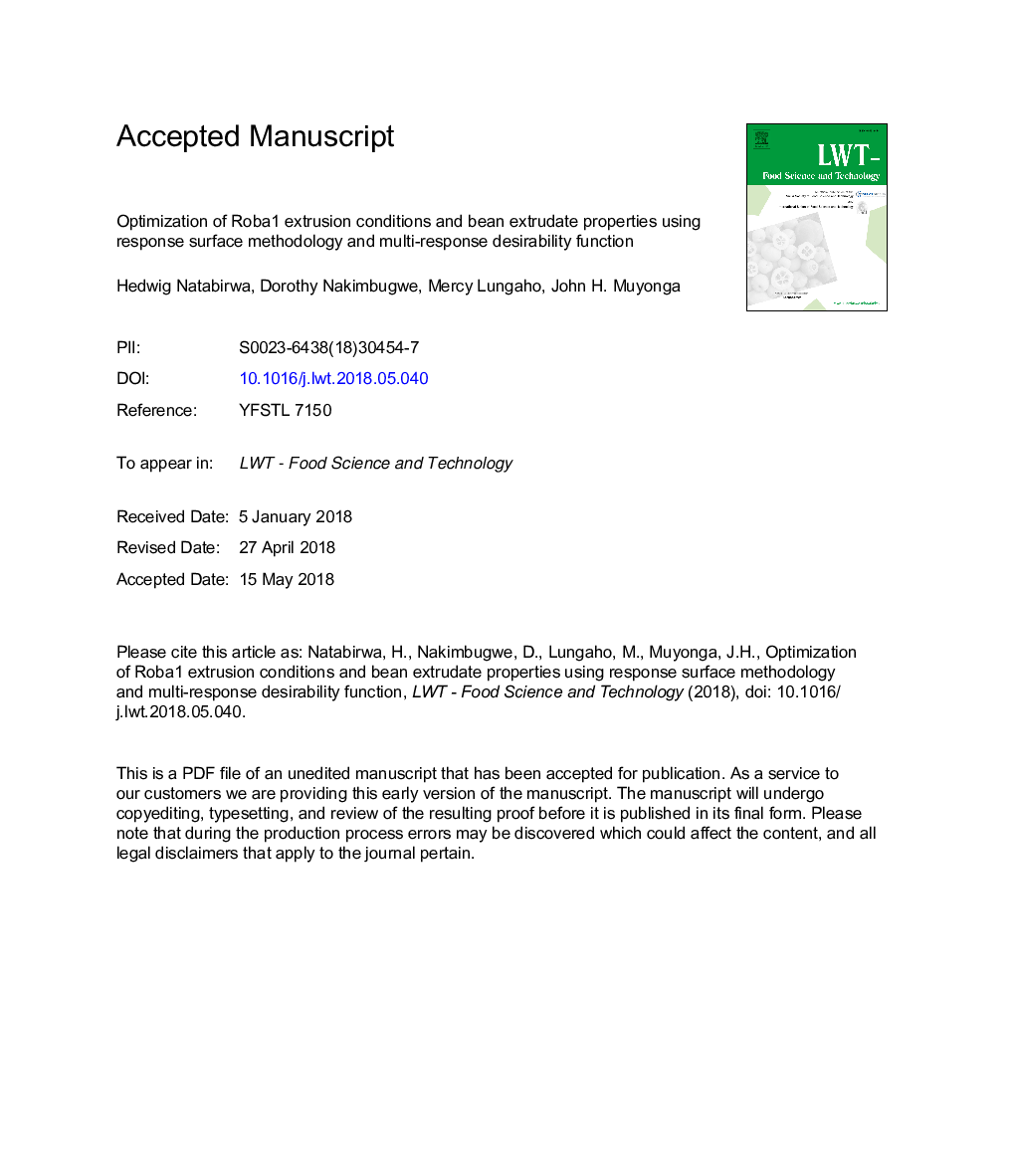| Article ID | Journal | Published Year | Pages | File Type |
|---|---|---|---|---|
| 8890564 | LWT - Food Science and Technology | 2018 | 34 Pages |
Abstract
Effects of extruder die temperature, screw speed and ingredient feed moisture on Roba1 bean extrudate nutritional and physicochemical properties were evaluated by response surface methodology (RSM) and extrusion processing conditions optimized for optimal extrudate attributes by multi-response desirability function. Responses taken were protein content, protein digestibility, polyphenols, phytates, extrudate expansion, bulk density, water absorption index, water solubility index, and texture. Feed moisture, die temperature and screw speed significantly (p < 0.05) influenced the physicochemical properties of Roba1 extrudates. Increase in feed moisture at low die temperatures resulted in decrease in extrudate expansion ratio (â¼3.96%) and water solubility (â¼10%). Increases in expansion, and reduction in bulk density and water absorption index due to increase in screw speed and die temperature were also observed. Predictive desirability optimization generated optimal attributes (expansion ratio, 2.59; bulk density, 1.32; protein digestibility, 81.58%; and hardness, 24.4â¯N) for snack with desirability index of 0.75. Information from this study can be useful for optimization of bean snack extrusion process and product in the food industry.
Related Topics
Life Sciences
Agricultural and Biological Sciences
Food Science
Authors
Hedwig Natabirwa, Dorothy Nakimbugwe, Mercy Lung'aho, John H. Muyonga,
